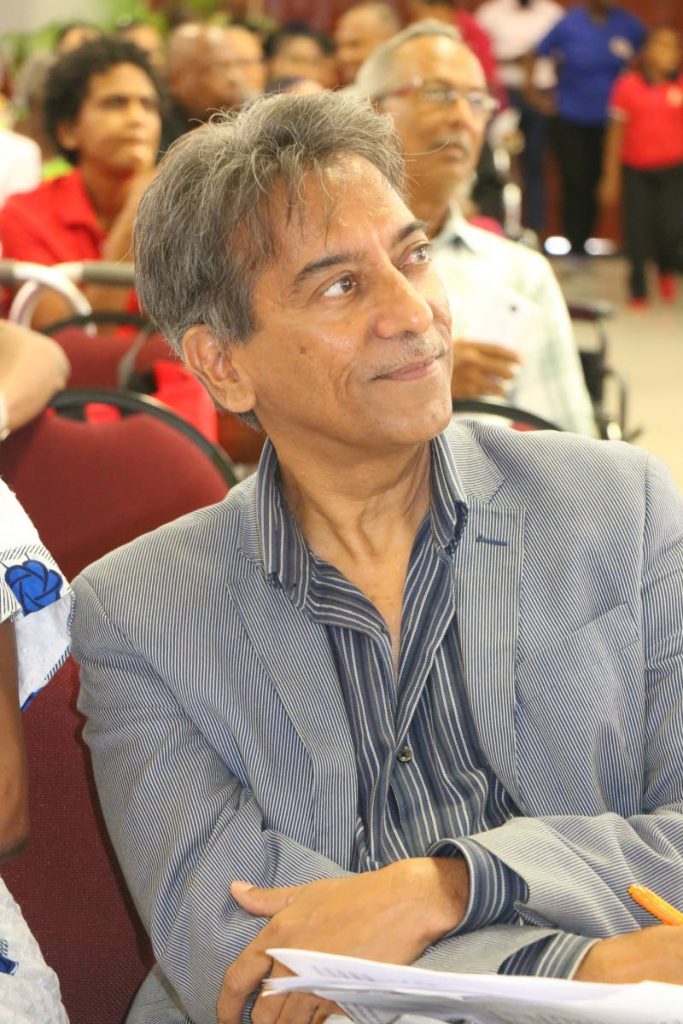Sleepless in TT: Tackling insomnia

This is part one of a two-part series on insomnia. Please see tomorrow’s Newsday for the second part.
Michelle Lorenz *, 48, has never been “brilliant” at sleeping but within the last year it’s become more difficult to do so. She’s good at no screens before bedtime, has blackout curtains, does not drink coffee at night, rarely drinks alcohol and exercises, but never too late in the evening.
Yet these behaviours aimed at promoting a good night’s sleep have not achieved what she hoped for. When she is reading – which she loves – it is difficult for her to stop, turn the lights off and go to sleep. On an average night, Lorenz starts heading to bed at around 10.30 pm, “then read for a length of time, then decide, okay I should be going to sleep now, turn off the light –and then it is completely hit or miss.”
Some nights she gets to sleep in half an hour, other nights she lies there for an hour and a half and then gets up and has something milky to drink.
Or she might be awake until 2 am. That’s when she starts calculating how much sleep she’s going to get and how she’s going to feel later on in the day.
The only upside is: “After a few bad nights in a row, I am so exhausted, I just pass out fairly early.”
Lorenz has not resorted to sleeping pills for her insomnia. During a stressful period in her life a doctor prescribed sleeping pills, but she did not like them as “they worked at getting me to sleep, but then I would get up feeling as though someone had hit me over the head with a brick the night before.”
She has found nothing else to help her deal with her insomnia.
Lorenz notices her lack of sleep at the end of a day after a bad night. Her insomnia depresses her because she has to do all of her work and chores while feeling really tired. If she has not had enough sleep for a couple of nights she tends to get headaches and, if not taken care of, they go on for “a very long time.”
Lorenz is one of millions of people affected by insomnia. The American Sleeping Association (ASA) website says 50 to 70 million US adults have a sleep disorder. Insomnia falls within the wider superset of sleep disorders.
Secretary of the Association of Psychiatrists of TT Dr Varma Deyalsingh defined insomnia as a disorder in which a person has difficulty falling asleep or staying asleep. He added that it could be an independent condition or caused by another medical, mental condition or sleep disorder.
In e-mail responses to Newsday, Deyalsingh said according to the Mayo Clinic and the Oxford Handbook of Clinical Psychiatry, more than 30 per cent of the global population is affected by insomnia.
Like Deyalsingh, clinical psychologist Valini Pundit knows the importance of treating insomnia. Pundit runs a private practice in Chaguanas.
If insomnia goes untreated it affects the body and mind.
“It leads to more difficulty concentrating and lower performance on cognitively demanding tasks at work or school. Sleep deprivation has also been shown, by numerous studies, to affect reaction time and driving ability as much as driving drunk. Physically, insomnia increases the risk for diseases like high blood pressure and heart disease.
“From a psychological perspective, stress, depression and anxiety share a bi-directional relationship with insomnia, with these leading to increased levels of insomnia and vice versa. Generally, people who suffer with chronic insomnia will more likely report a lower overall quality of life than those who are sleeping well,” she said in e-mail responses.
Individuals affected by insomnia may experience increased levels of stress, exhaustion, lower levels of motivation, slower reaction times, more difficulty concentrating and lowered cognitive performance overall.

This then affects societal productivity: recent research showed insomnia is the leading cause of absenteeism, accidents and errors, she said. Insomnia has been estimated to cause the US workforce over US $60 billion a year in lost productivity, Pundit said.
While Pundit said insomnia can be complex to treat, she recommended, if it is chronic, the sufferer should seek professional help. For general stress-related insomnia, or insomnia caused by lifestyle choice, Pundit said simple behavioural changes might help
While some people believe hypnotics and medication are the first line in treating insomnia, Deyalsingh said this is not so. It was important to identify the underlying causes of the insomnia that can be addressed without medication, he said.
He suggested using cognitive behavioural therapy (CBT) for insomnia. The Mayo Clinic defines CBT as “a structured programme that helps you identify and replace thoughts and behaviours that cause or worsen sleep problems with habits that promote sound sleep.”
It involves relaxation training (also known as progressive muscle relaxation teaches the person to systematically tense and relax muscles in different areas of the body), breathing exercises, mindfulness, meditation techniques, sleep hygiene training (correcting bad habits that contribute to poor sleep), sleep restriction (severely limiting and then gradually increasing one’s time in bed) and stimulus control (going to bed only when sleepy, waking at the same time daily, leaving bed when unable to sleep, avoiding naps and using the bed only for sleep and sex).


Comments
"Sleepless in TT: Tackling insomnia"